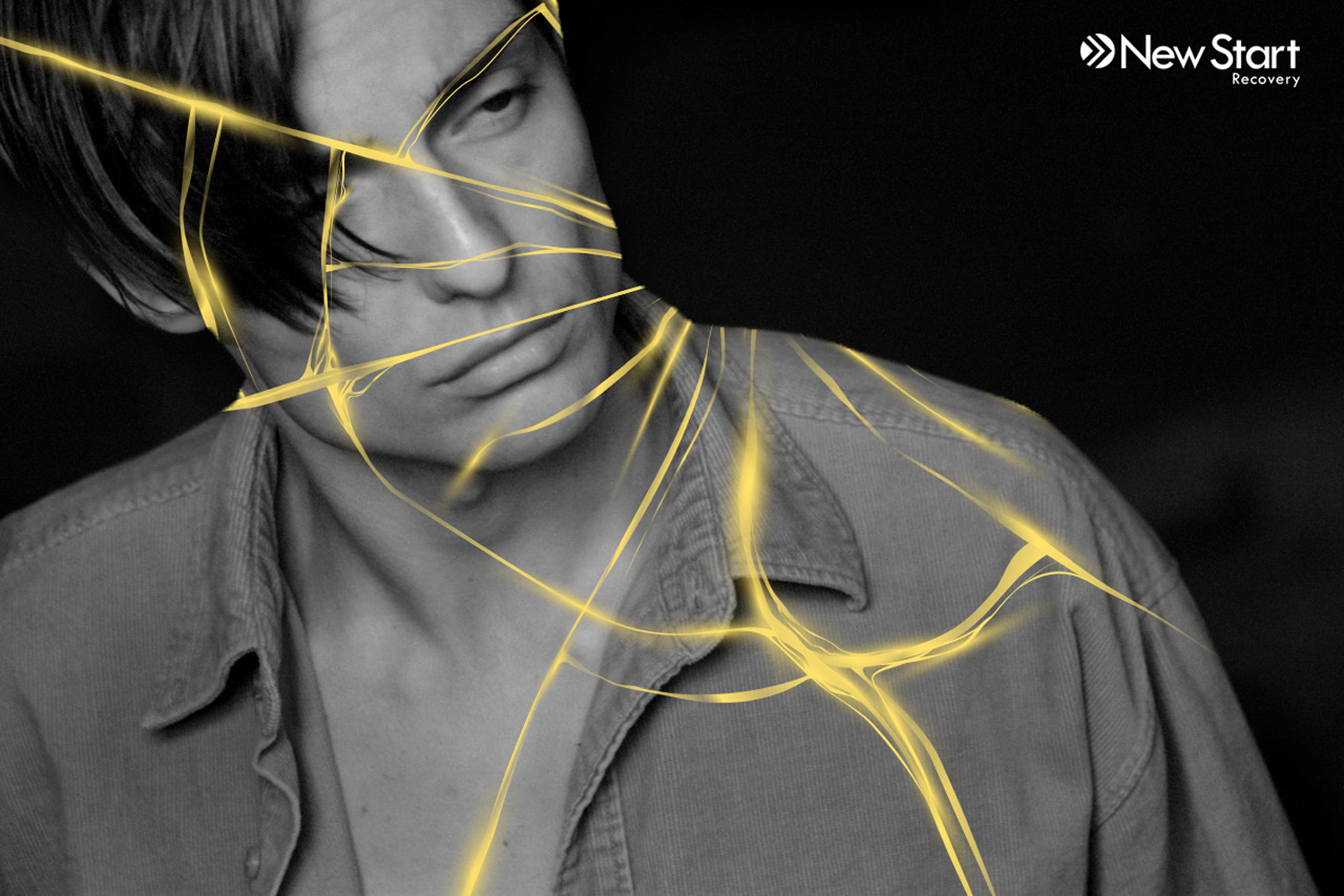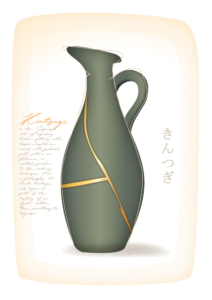Dulled senses have a way of lulling us through pain. Alcohol and drugs act as a crutch that seem to help us escape from the realities of the hustle. Drug dealer cut you for being late on a payment? Nothing a quick slam can’t fix. Pesky hangover from drinking too much the previous night? A quick shot and poof, no more headache! Except… those inconvenient moments of sober clarity keep resurfacing and disturbing the illusion that everything is okay. Whether we admit it or not, substance abuse damages the psyche. But there is hope in recovery to staunch those wounds, and come out even stronger than before. That’s what the ancient Japanese art of kintsugi is all about.
Kintsugi: The Art of Repairing Broken Pottery
In the ancient Japanese art of kintsugi, shards of broken pottery are fused back together with lacquer that has been mixed with gold, silver, or platinum dust. Kintsugi is a metaphor for the healing process. This art’s philosophy reframes the residual effects of suffering; rather than seeing it as something to hide, kintsugi treats that repair as a beautiful part of your history. This makes ceramic pieces not only functional again, but more beautiful for having a sort of golden scar tissue.
Taking Care of Wounds
On the whole, Japanese culture excels at addressing the not-so-sexy aspects of the human condition. Loneliness, sadness, psychological scarring… it all takes front and center stage in many of their art forms. It’s an attitude we ought to admire in the United States because we so often let our machismo get in the way of healing.
But pretending that a problem doesn’t exist is no way to fix it. Too often, we see such repression lead to relapse when dealing with individuals who struggle with substance abuse. A therapist’s job is to provide clients with the tools to confront their wounds head-on. This healing process mirrors the idea of “golden repair” found in the art of kintsugi. It takes time and dedication to succeed at recovery. But just as any journey worthwhile can’t be completed in an afternoon, the staying power of a sober lifestyle through recovery is worth it.
Strength of Scar Tissue
Staring your own dysfunctional behavior directly in the eye? It hurts, yes. It’s uncomfortable, yes. Acknowledging our problems threatens to compromise our sense of self. But just as kintsugi gold must reach its melting point before it can be used for repairing shards of broken pottery, our mental wounds must be addressed and cleansed before they can heal. A residential treatment program offers the perfect environment for that brand of healing. In the video below, Basharat Khan, M.A., MFTi, PCCi explains the concept and value of a 10 Step Group:
The Beauty of Healing
Rather than slapping a band aid on a bullet hole, honesty in treatment can lead to a stronger, more beautiful version of ourselves. If you or a loved one is ready to seek help, talk to one of our addiction counselors today: 855-737-7363



